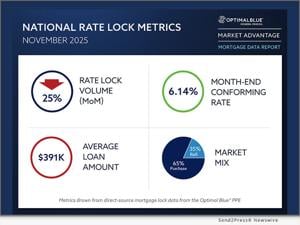Discover the Power of Maestro: A Self-Hosted AI Research Assistant

The rise of self-hosted software solutions has taken a significant leap with the introduction of Maestro, an innovative AI-powered research assistant. Designed to streamline the research workflow, Maestro offers capabilities that extend beyond traditional AI tools, providing users with a comprehensive platform for collecting, organizing, and reporting research findings.
Understanding Maestro’s Unique Features
What sets Maestro apart is its approach to managing the entire research process. Unlike typical AI tools that focus on single interactions, Maestro employs a multi-agent system that engages with various aspects of research. This allows users to undertake a deeper, more structured investigation, ultimately leading to the production of citation-rich reports.
Maestro operates on a local server and is built on the FastAPI framework, ensuring stability and efficiency. Users need at least 16GB of RAM and 30GB of storage to run Maestro effectively, although it is recommended to use 32GB or more, along with a dedicated GPU for optimal performance. The installation process involves utilizing Docker, making it accessible for those familiar with basic software setup.
To install Maestro, users simply need to clone the repository and navigate to the environment setup. The interactive setup script, setup-env.sh, guides users through the configuration of API keys for AI providers, search parameters, and deployment options. Once everything is configured, users can access Maestro via a web interface, allowing for seamless interaction with the tool.
Enhancing Research Efficiency and Collaboration
Maestro’s functionality shines during the research phase. Users define a research mission by outlining the scope and depth of the analysis desired. The system then mobilizes its agents to create a tailored research strategy that includes searching through document libraries and the internet for relevant information. This process is iterative, allowing agents to critique and refine their findings before delivering a structured report.
One of the standout features of Maestro is its advanced document management system. Users can upload various file formats, including PDFs and Word documents, into a centralized library. The platform uses a robust Retrieval-Augmented Generation (RAG) pipeline powered by BGE-M3 embeddings, which enhances document indexing and retrieval capabilities.
Integrating with search providers such as Tavily, LinkUp, and Jina, Maestro efficiently parses online content, including complex JavaScript-heavy pages, which are often challenging for conventional scrapers. This integration allows for a more comprehensive data gathering process.
Once the research is complete, Maestro transitions to the writing phase. The collaborative writing assistant leverages the user’s research history and document library to provide relevant writing suggestions. This feature enhances the drafting process, ensuring that the resulting documents are well-cited and reflect the research conducted. The built-in editor supports real-time collaboration, LaTeX for technical writing, and citation management tools, making it a versatile solution for various writing needs.
While Maestro offers substantial benefits, it may not be suitable for users seeking quick answers from a chatbot. Its true effectiveness emerges in scenarios involving complex research that necessitates synthesizing large volumes of data and maintaining contextual continuity across sessions.
In a world increasingly concerned with data privacy and control, self-hosting solutions like Maestro present a viable alternative to cloud-based tools. Users can maintain their data security while enjoying the benefits of comprehensive research assistance. As self-hosting becomes more accessible, individuals and organizations alike can explore options that align with their needs and preferences.
For those considering self-hosting, Maestro stands out as a powerful tool that not only enhances research capabilities but also empowers users with greater control over their data and processes. With the right setup, the potential for improved efficiency and collaboration in research is within reach.






